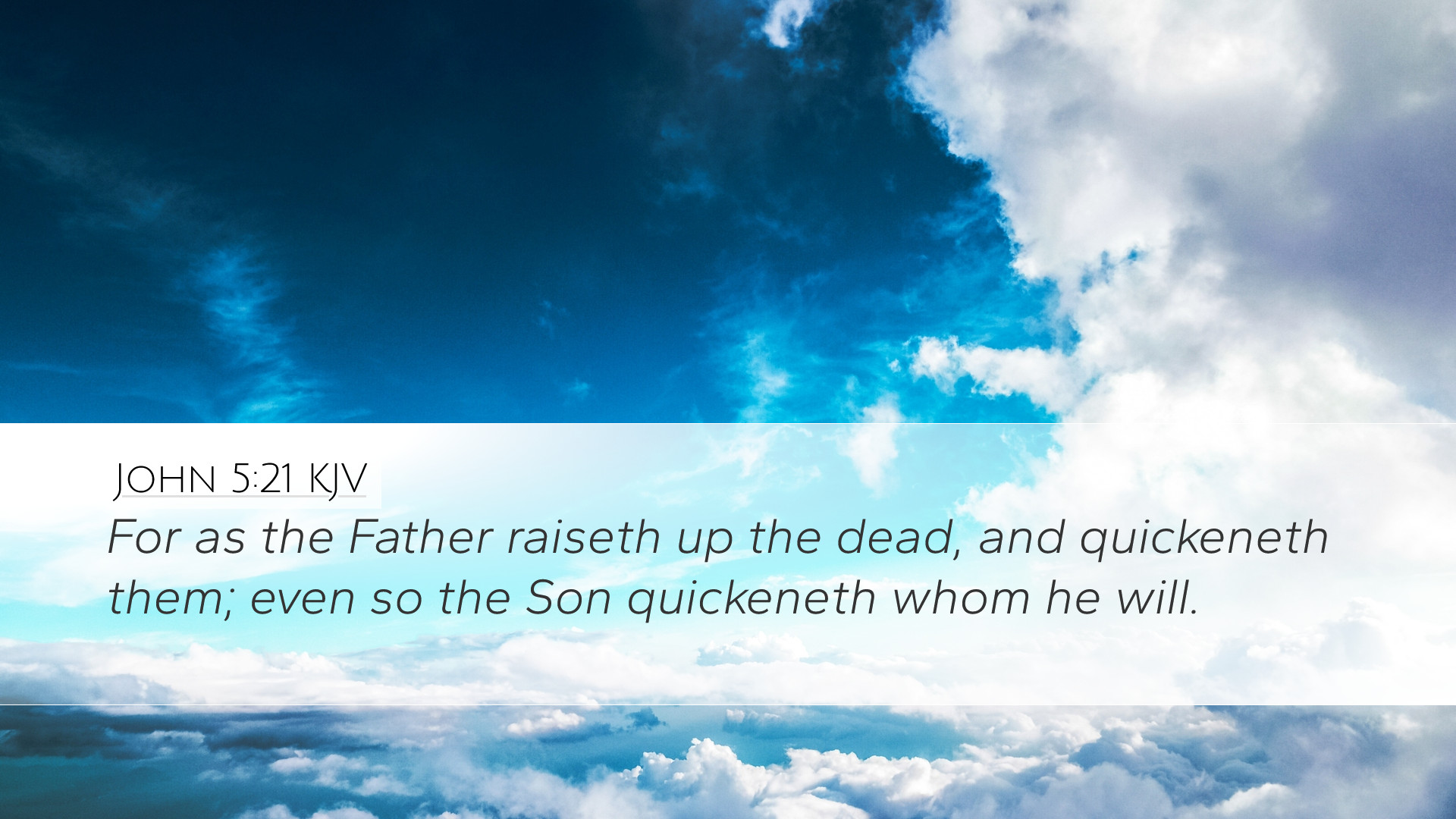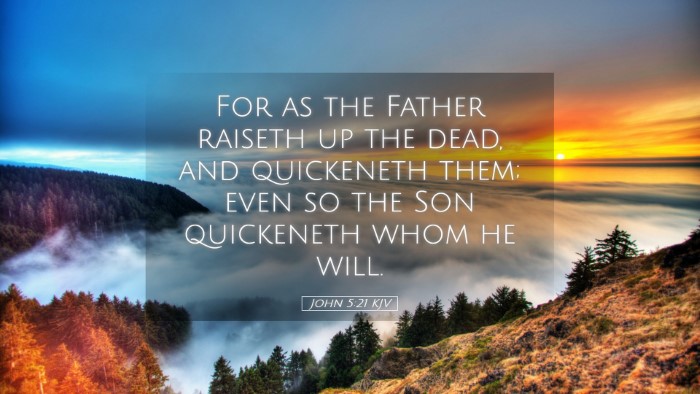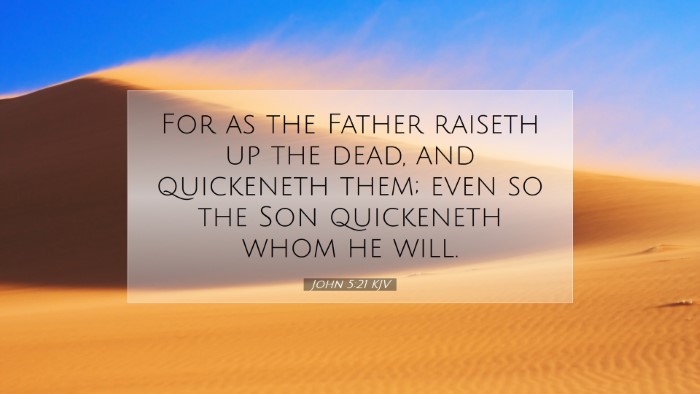Old Testament
Genesis Exodus Leviticus Numbers Deuteronomy Joshua Judges Ruth 1 Samuel 2 Samuel 1 Kings 2 Kings 1 Chronicles 2 Chronicles Ezra Nehemiah Esther Job Psalms Proverbs Ecclesiastes Song of Solomon Isaiah Jeremiah Lamentations Ezekiel Daniel Hosea Joel Amos Obadiah Jonah Micah Nahum Habakkuk Zephaniah Haggai Zechariah MalachiVerse
John 5:1 John 5:2 John 5:3 John 5:4 John 5:5 John 5:6 John 5:7 John 5:8 John 5:9 John 5:10 John 5:11 John 5:12 John 5:13 John 5:14 John 5:15 John 5:16 John 5:17 John 5:18 John 5:19 John 5:20 John 5:21 John 5:22 John 5:23 John 5:24 John 5:25 John 5:26 John 5:27 John 5:28 John 5:29 John 5:30 John 5:31 John 5:32 John 5:33 John 5:34 John 5:35 John 5:36 John 5:37 John 5:38 John 5:39 John 5:40 John 5:41 John 5:42 John 5:43 John 5:44 John 5:45 John 5:46 John 5:47

